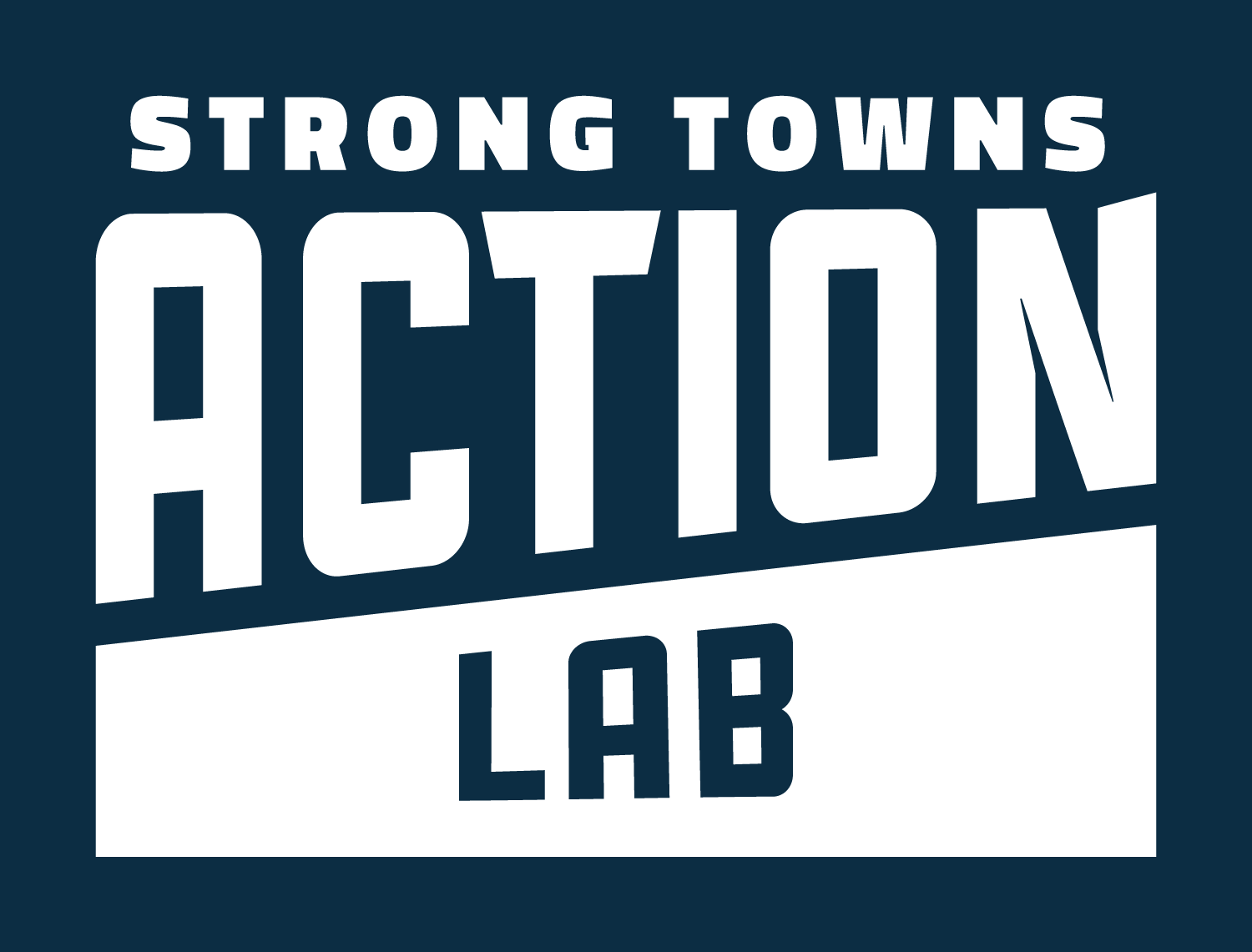CDOT Cancels Highway Expansion Plans
June 6 - 10 is our annual Member Week here at Strong Towns. This year, we’re launching five priority campaigns that, if successful, will make the biggest difference in building strong towns all across the United States and Canada. Through the End Highway Expansion campaign, we will work with local leaders and governments to expose these projects for what they are: a drain on our budgets and a blight on our communities.
We need your support to make this happen. Donate now and join a movement of 3,000+ members working to build their own strong towns.
A Colorado highway. (Source: Flickr.)
For years, the Colorado Department of Transportation (CDOT) examined and calculated highway expansion plans to unclog I-25 through central Denver. They mulled over deep studies contemplating solutions ranging from extra general-purpose lanes, to congestion management fees at busy times, to new managed or toll lanes, to “braiding” crowded entrances and exit ramps. Just as the time came to act on a final decision, CDOT dropped all expansion plans, stating that the agency had no foreseeable money for widening efforts.
This story, published in The Colorado Sun, states:
“‘CDOT has also determined that the funds do not exist for the widening of I-25 between 6th Avenue and Alameda Avenue and that only relocating the Consolidated Main Line off I-25 must be studied,’ according to a letter from transportation department director Shoshana Lew. The letter was included in April commissioner study materials.”
“I think people are starting to understand that these highways are really city killers,” said transportation analyst Matt Frommer to the Colorado Sun. “And we’re trying to build a more livable city. So I’m glad we’re leaving the capacity as is and hopefully using the $1.5 billion for other good stuff.”
In March of this year, a coalition of environmental and alternative transportation groups sent a group letter to CDOT, Denver and the Denver Regional Council of Governments, demanding they discontinue planning to construct more lanes on central I-25 and direct funds towards other more diverse modes of transportation.
“Colorado leaders can no longer pretend it’s possible to have it both ways,” wrote the advocates. “You can not continue to fund highway widenings that induce demand for driving while spending a marginal amount on multimodal projects. Colorado must stop highway expansion projects and instead must significantly increase investment in projects and programs that increase transportation options.”
Two months later, the coalition was shocked when CDOT agreed with their arguments, after years of studying I-25 congestion management alternatives, and halted the highway expansion plans, noting the group’s point that it was not a financially viable course of action.
#NoNewRoads is our campaign to stop unnecessary and unaffordable spending on highways and roads.
Read more case studies and example over at the Strong Towns Action Lab.
Highway expansion has been the primary solution for many DOTs when faced with solving congestion issues. Strong Towns has been advocating that this never works, and only creates more traffic congestion while leading the community into debt. This story is a great step towards prosperity in building a strong town when a city just says “no” to damaging road expansions and turns their funds instead toward creating more walkable cities with various transportation options.
In CDOT’s most recent study of the corridor in question, they evaluated a wide variety of potential solutions, all centered around developing a more extensive road system aimed at increasing safety and easing congestion. The Colorado Sun notes: “They included adding general purpose lanes or managed (toll/high-occupancy vehicle lanes; creating dedicated express bus lanes to expand transit use; a ‘braided’ ramp system to alleviate problems created by too many entrances and exits weaving through a packed corridor; and even moving the highway entirely to a far away corridor and repairing the urban core.”
The article continues: “While CDOT will continue to pursue replacing the corridor’s key out of date bridges, it is now acknowledging that lane expansions for I-25 are a not-now, maybe-never proposition. In late 2021, CDOT commissioners approved rules fulfilling a state law that make planning for greenhouse gas reductions from vehicle traffic a mandatory part of all major projects. The rules are meant to move the agency away from its traditional role of pouring concrete and paving roads, and toward so-called multi-modal traffic planning that incorporates mass transit, bicycles and pedestrians.”
This is a great victory for Strong Towns and Strong Towns advocates who follow the #NoNewRoads campaign. For years, Strong Towns advocates have been spreading this message in their communities that municipalities have no plan or willingness to maintain the roads already in place and should stop expanding those roads even further.
Strong Towns is glad to see cities waking up to this reality and ending wasteful, expensive highway expansion, refocusing on other transportation options like biking, walking, and transit that are more affordable, safe, and people-centered.
In the coming weeks, expect a big announcement about how we’re going to move forward this campaign to end highway expansion.



Seairra Jones serves as the Lead Story Producer for Strong Towns. In the past, she's worked as a freelance journalist and videographer for a number of different organizations. She currently resides between small-town Illinois and the rural Midwest with her husband, where they help manage a family homestead. When Seairra isn’t focusing on how to make our towns stronger, you can find her outside working on the farm, writing fictional tales in a coffee shop, or reading in a hammock.